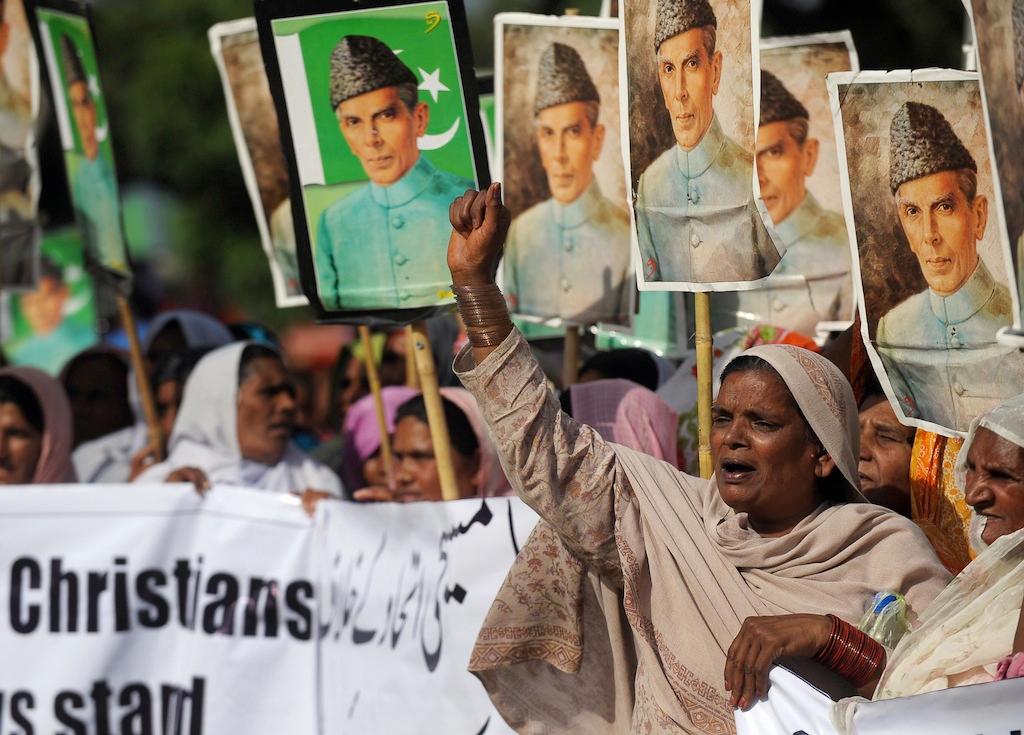Pakistan: Christian boy’s tortured body found
Homeless Pakistani Christians protest for the protection of Christian minorities in Islamabad on April 27, 2009.
KARACHI, Pakistan — The brutally tortured body of an 11-year-old Christian boy has been found by investigators in Faislabad, just days after a Christian girl with down syndrome was arrested on charges of blasphemy.
According to RT, Samuel Yaqoob, who lived in a Christian colony in Pakistan's Punjab state, was found with his lips and nose sliced off, his stomach removed, and his legs mutilated. According to reports, he'd been missing since Monday.
Police are unsure whether the attack on Yaqoob was motivated by the boy's perceived blasphemy, the Telegraph reported. The majority of Pakistan's 180 million people are Sunni Muslims, and Christians have often complained that they are targeted by the country's blasphemy laws.
According to Voice of America, anyone accused of blasphemy in Pakistan can be executed under the death penalty. The laws are often blatantly misused to settle local disputes, and human rights organizations, such as Amnesty International, have called on the Pakistani government to reform the law.
In 2011, Punjab Governor Salman Taseer was gunned down by his bodyguard for supporting reform and speaking out against a Pakistan Christian, Aasia Noreen, being given the death sentence for blasphemy. A few months later, Pakistan's minority minister, a Christian, was also killed. Taseer's son was kidnapped that August.
The incidents have had their desired results: progress on reforming the law has been slow moving, though on Monday, Pakistan's President Asif Ali Zardari called for an explanation of the charges against the 11-year-old Christian girl with Down Syndrome.
The story you just read is accessible and free to all because thousands of listeners and readers contribute to our nonprofit newsroom. We go deep to bring you the human-centered international reporting that you know you can trust. To do this work and to do it well, we rely on the support of our listeners. If you appreciated our coverage this year, if there was a story that made you pause or a song that moved you, would you consider making a gift to sustain our work through 2024 and beyond?
